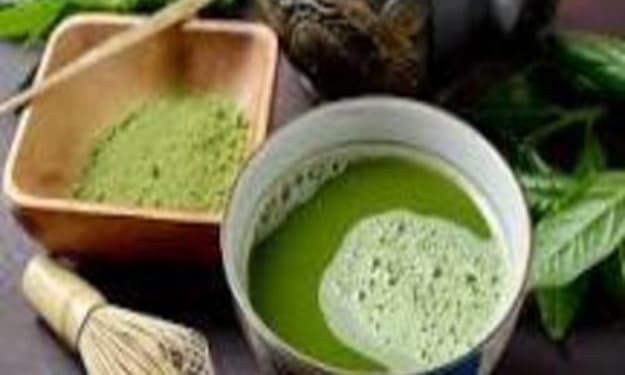How to Eat Seasonally So That You Do Not Get Sick and Have Energy
Chinese actionable advice.

In order to have a balanced diet and to ensure your health from month to month, you need to know some valuable information from traditional Chinese medicine related to seasonal nutrition.
Many of us are aware of the texture, taste, aroma, consistency, and energy (chi, as the Chinese call it) of each fresh product, whether it is from our yard or bought from the market.
But eating imported fruit from the other side of the globe in the middle of winter does not only mean financial extravagance, but it causes disharmony in the body, say the Chinese!
Seasons and meteorological elements bring heat, cold, wind, dryness, or humidity into our lives. From the perspective of traditional Chinese medicine, these elements also exist in our body at any time of the year and it is important to provide the body with food that counterbalances these elements to ensure balance and therefore the health of the body from one season to another.
What happens inside our body in terms of health or disease is determined by what we eat, the type of body we have, the genetics, and the mental or emotional state we have, but it can be dramatically influenced by the weather. or seasonal changes.
Fortunately, Mother Nature helps and assists us by providing us with foods that can be eaten to achieve the harmony so necessary to the body.
Traditional Chinese medicine believes that eating foods that are appropriate and compatible with seasonal changes decreases the risk of illness in the next season, as it helps the body prepare for climate change following the transition from one season to another.
Also in these Chinese principles is the information that in winter or when it is cold outside, predominantly hot food (yang) and heated food will nourish the body and spirit and will be easier to digest. An excess of cold and raw foods in winter and cold conditions creates disharmony in the body and slow digestion.
Our bodies can be warm, hot, cold or very cold, or a mix of all these and this is also true of the types of food consumed. For example, a person with a cold constitution will need heat from the diet and will eat hot and hot food both in terms of temperature and type.
Many Chinese carry a small thermos of hot water with them during the winter, and many Chinese elders start their cold winter days with a small portion of brandy, as it is said to awaken their "inner fire" and prevent winter illnesses (alcohol It warms up but can also be invigorating, but it is not at all suitable for a person who is hot as nature, as a way of being!).
Chinese medicine is essentially about balance. The rule is not to eat a large amount of food but to eat seasonally as the safest way to prevent imbalance in the body.
In cold weather, for example, we need foods that give us warmth, support our kidney function, and conserve energy. We need food to protect our hearts and spirit.
Many women who have iron deficiencies will feel more severe in the winter. In these cases, it is recommended to eat foods rich in iron, such as vegetables and beef.
Winter is a good time to prepare and serve steamed and slow-cooking foods, such as soups or stewed foods that have a calming and warming effect. Kids like to come home from school in the winter and eat a bowl of hot soup.
Here's a quick and tasty Chinese soup recipe:
Ingredients
- A carrot (cleaned and cut into 5 pieces)
- An onion (peeled and cut into 4 pieces)
- One kilogram of beef / pork / chicken bones
- A handful of fresh and finely chopped parsley
- Salt, a little soy sauce for flavor
- Pepper
Preparing:
In the morning, but the first three ingredients in a saucepan over low heat, fill with water and simmer for a few hours. Before serving, add the parsley, salt, soy sauce, and pepper. Later, other ingredients such as eggs, other vegetables, or noodles can be added.
Info:
For pregnant or lactating women, or for those with chronic diseases, this type of prepared chicken soup with red beans is very tonic and charges the body with energy, refreshing the blood.
Foods divided into cold or hot
Some foods have yin or refreshing properties, so they are cold foods, while others have yang properties, so they are hot. The challenge is to eat a diet that has a balance between the two.
When someone is ill, a Chinese doctor will first recommend a change of diet to restore harmony between yin and yang in the body, knowing that the presence of the disease means an interruption of the flow of harmony and energy in the body.
For example, for people who suffer from heartburn due to the consumption of many yang foods, instead of antacids doctors recommend herbal teas to restore their yin strength. Colds and flu are treated the same way, less with doctors than with restoring the balance between cold and hot foods.
There is no totally cold or totally hot food, but there are dominant ones. Therefore, Chinese specialists have not reached a consensus on a final list of 100% cold (yin) and hot (yang) foods. The key is the balanced combination of them on the plate and depending on the off-season.
Indicatively, the foods considered cold and recommended in the hot season are raw cabbage, raw carrots, cucumbers, seafood, fish, duck, tofu, water, vegetables, and raw fruits in general.
The hot foods recommended in the cold season are beef, chicken, eggs, ginger, rice, mushrooms, sesame, wine.





Comments
There are no comments for this story
Be the first to respond and start the conversation.